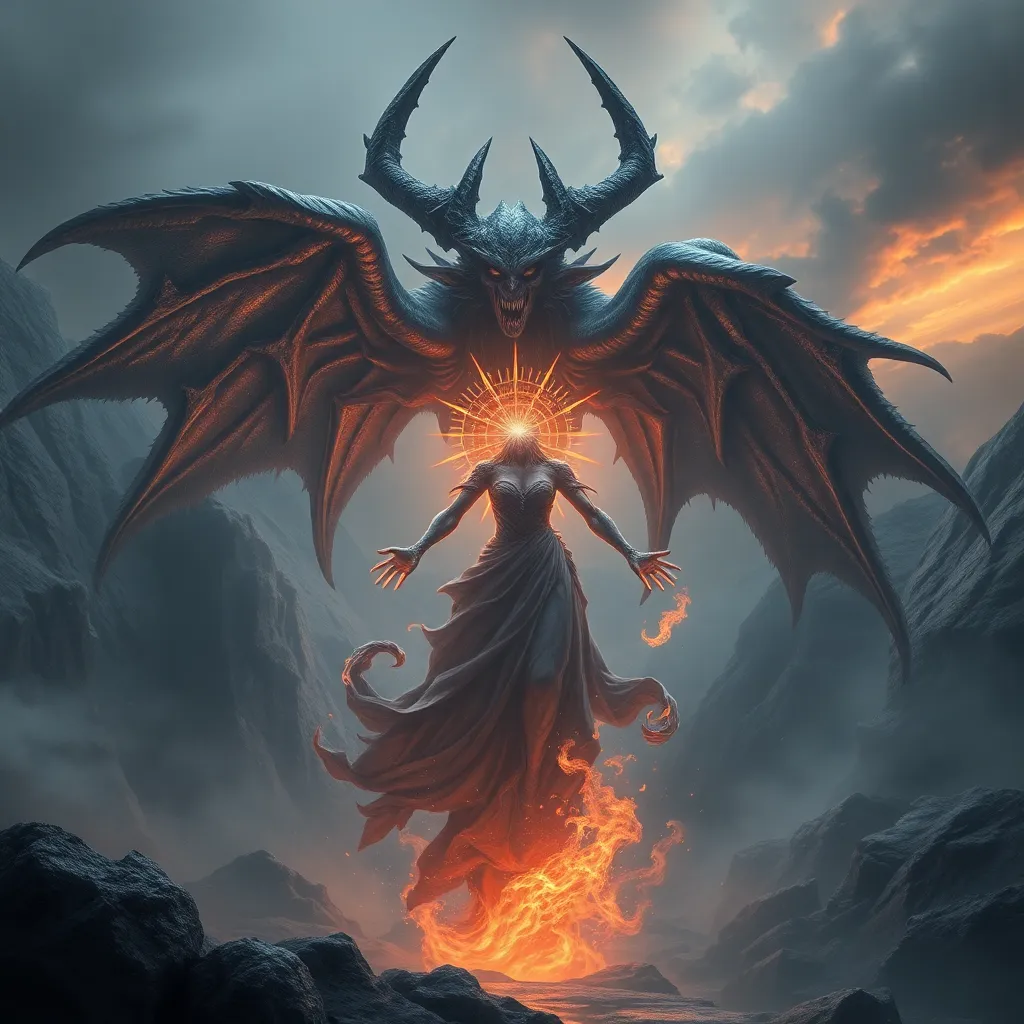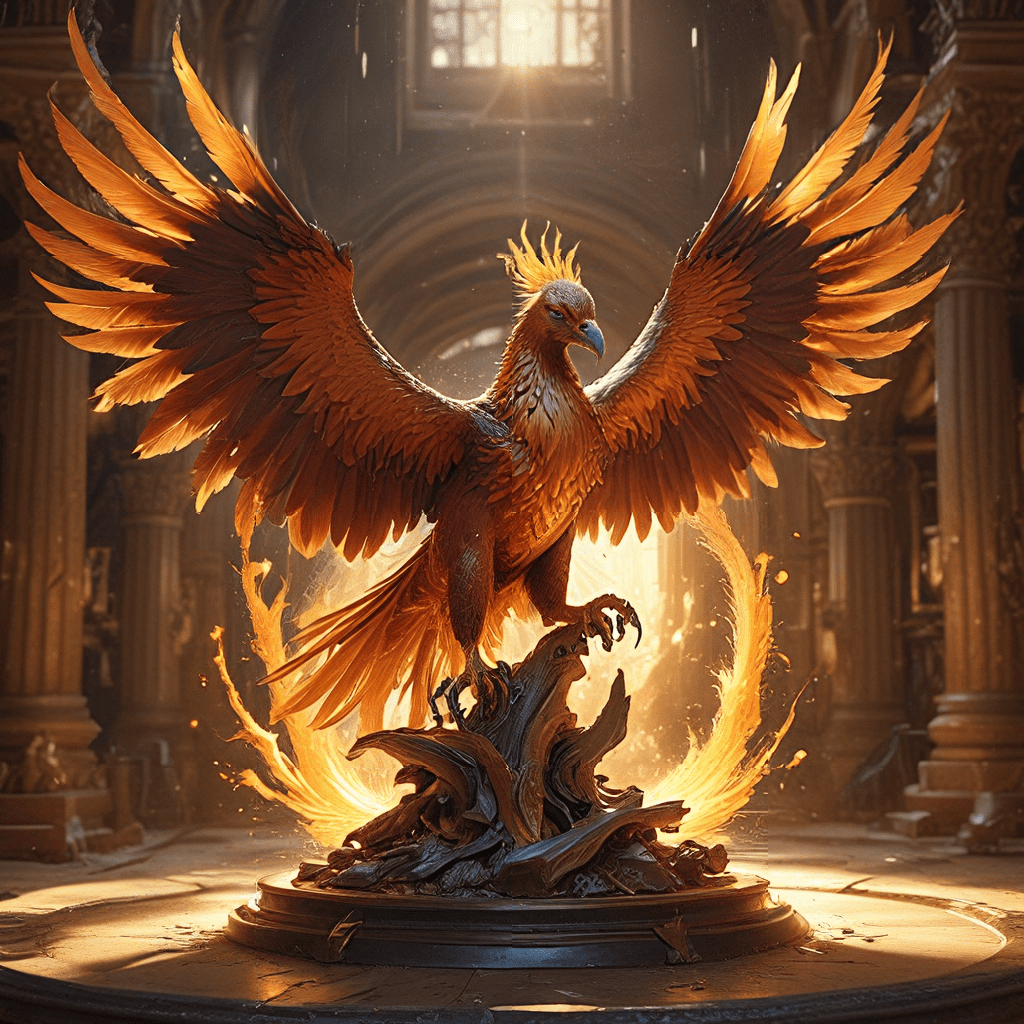Empusa and the Heroes: Encounters with the Demonic Entity in Greek Epic Literature
I. Introduction
In the rich tapestry of Greek mythology, Empusa stands out as a captivating and terrifying figure. Defined as a demonic entity, Empusa embodies the darker aspects of human experience, particularly the themes of seduction, manipulation, and fear. Within epic literature, demonic entities like Empusa play a crucial role, often serving as obstacles for heroes, testing their resolve and moral fiber. This article aims to delve into the significance of Empusa within hero narratives, exploring her mythological background, characteristics, encounters with heroes, and lasting legacy in literature.
II. The Mythological Background of Empusa
Empusa’s origins can be traced back to ancient Greek beliefs, where she was often associated with the underworld and the goddess Hecate, a figure synonymous with magic and witchcraft. In myth, Empusa is described as a shape-shifter, capable of taking on various forms, which reflects the fluidity and unpredictability of evil. Her character is intricately woven into the fabric of Greek mythology, where she embodies the fears and anxieties of the ancient Greeks regarding the unknown and the supernatural.
Empusa’s relationship with other demonic entities enhances her role in mythology. She is frequently depicted as a servant of Hecate and is sometimes linked to other figures of darkness, such as Lamia and the Gorgons. This network of associations amplifies her symbolism, representing the dual nature of fear and temptation that heroes must confront.
III. Empusa’s Characteristics and Powers
Empusa is often described with vivid and terrifying imagery. She is said to possess a monstrous appearance, combining elements of human and beast, which allows her to instill fear in those who encounter her. Her ability to transform into the likeness of beautiful women serves as a powerful tool for seduction, drawing in unsuspecting victims.
Among her many powers, the most notable are:
- Seduction and Manipulation: Empusa’s beauty can disarm even the most vigilant heroes, leading them to their doom.
- Shape-shifting: Her ability to change form allows her to exploit the vulnerabilities of her targets.
- Deception: As a trickster, Empusa uses cunning strategies to ensnare her prey, often preying on their desires and fears.
IV. Encounters with Empusa in Epic Literature
Empusa makes significant appearances in various epic texts, where her encounters with heroes are laden with dramatic tension. Two key sources illustrate her role effectively:
1. Homer’s “Odyssey”
In the “Odyssey,” Empusa is not named directly, but her essence is present in the challenges Odysseus faces as he navigates the treacherous waters of temptation and deceit. The episode with the Sirens, who lure sailors to their doom with enchanting songs, echoes Empusa’s characteristics. Odysseus must resist their call, showcasing the struggle against seductive evil.
2. Euripides’ Plays
In Euripides’ works, Empusa is more explicitly referenced. For instance, in “The Bacchae,” the influence of demonic forces is palpable as characters grapple with their desires and the resulting chaos. The presence of Hecate and her minions, which include figures akin to Empusa, illustrates the perilous intersection of human agency and supernatural manipulation.
These encounters highlight the tension between heroes like Odysseus and Theseus and the seductive forces embodied by Empusa, emphasizing the hero’s moral choices in the face of temptation.
V. Thematic Analysis of Heroic Encounters
The encounters between heroes and Empusa serve as a rich ground for thematic exploration in literature:
- The Struggle Between Good and Evil: These encounters often represent the classic battle between virtue and vice, where heroes must navigate moral dilemmas.
- The Role of Fate and Choice: The choices heroes make in resisting or succumbing to temptation shape their destinies, highlighting the importance of free will.
- Implications for Hero Development: Engaging with demonic forces like Empusa catalyzes character growth, forcing heroes to confront their fears and desires.
VI. Comparative Analysis with Other Demonic Entities
Empusa shares similarities with other mythological figures such as Lamia and Lilith. Each of these entities embodies aspects of femininity intertwined with danger and seduction. However, there are notable differences:
- Lamia: Often depicted as a child-stealing monster, Lamia’s motivations differ as she is driven by vengeance.
- Lilith: Originating from Jewish mythology, Lilith represents a more rebellious spirit, often rejecting traditional roles.
These comparisons illuminate how different cultures understand and portray evil, enriching our understanding of hero narratives across time.
VII. Legacy and Influence of Empusa in Later Literature
The legacy of Empusa extends beyond ancient Greece, influencing Roman literature and Byzantine texts. She has been reinterpreted in various forms, reflecting changing cultural attitudes towards women and the supernatural. In modern adaptations, Empusa’s character has found new life in contemporary literature and popular culture, often symbolizing the allure and danger of the unknown.
Examples include:
- Films that depict seductive witches or demonic figures reminiscent of Empusa.
- Literary works that explore themes of temptation and morality, drawing on her mythological roots.
VIII. Conclusion
In summary, Empusa’s role in heroic narratives is multifaceted, serving as a potent symbol of the struggles heroes face against temptation and evil. Her encounters with figures like Odysseus and Theseus underscore the enduring significance of demonic entities in literature. As we reflect on these themes, it becomes clear that the exploration of demonic figures like Empusa offers rich insights into human nature, morality, and the eternal battle between light and darkness.
Thus, further exploration of demonic figures in epic traditions remains a valuable endeavor, inviting us to consider how these narratives shape our understanding of heroism and the human condition.



